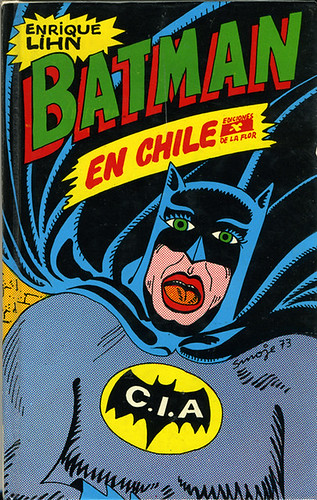Language in Chile
In Chile, the predominant language is Spanish. Whether you are making a serious effort to take your Spanish to the next level, or just picking up a few essential words and phrases, being able to communicate with your Chilean students, friends, and host family will make a big difference!
Chilean Spanish
As a Latin American country, Chile is predominantly Spanish-speaking. Nearly everyone in Chile can speak and understand Spanish. For most people, it is their first language.
The dialect of Spanish spoken in Chile shares much of its pronunciation with Andalusian Spanish. In Andalusian Spanish, the final consonant of a word will often be dropped off. Another common feature is that the letter ‘s’ is often aspirated to sound like an English ‘h,’ or not pronounced at all.
Although it shares much with Andalusian Spanish, Chilean Spanish has its own distinct pronunciation, grammar, and slang. It is, in many ways, a language of its own. One of the biggest challenges in mastering Chilean Spanish is the abundance of unique Chilean slang.
Here are a few examples of common slang words:
Andar – to casually date someone
Pololear – to date someone (more serious than andar)
Pololo/a – boyfriend/girlfriend
Lata – boring
Huevón – This versatile word can mean “friend,” “dude,” “buddy,” “jerk,” or any number of other things, depending on the context.
Loan words from indigenous languages also make up a large part of Chilean Spanish. These loan words are taken from the Mapudungun, Quechua, and Lunfardo languages. While loan words are primarily used for the names of vegetables and animals, here are a few common expressions that you are sure to hear.
Guagua – Baby
Choclo – Corn
Pichintún – A little bit
Pucho – This refers to a cigarette or a cigarette butt.
Bacán – Great! or Awesome!
Chile – Indigenous Languages
Nearly all Chileans speak and understand Spanish. However, Chile has a strong native South American heritage, and many indigenous languages are still used by small groups of the population.
Mapudungun – Spoken by the Mapuche people who inhabit Southern Chile and some parts of Argentina. With less than a million people who still speak this language (some estimates put the number as low as 200,000) and often insufficient efforts to promote and protect the language, it is decreasing in usage.
Quechua – Just as Mapudungun is spoken primarily by indigenous peoples living in the far south, Quechua is spoken in the far north. The indigenous language overlaps with South Bolivian Quechua.
Rapa Nui – The famous and mysterious Easter Island falls within Chilean territory. The island and its inhabitants have their own language, known as Rapa Nui. As the Rapa Nui minority moves to the mainland, and as children grow up speaking Spanish, this language is rapidly disappearing—it is estimated that less than 1,000 fluent speakers are left!
English in Chile
English is taught in most schools in Chile, and is used as the language for international business. However, outside of popular tourist destinations, most people have only a basic understanding of English.
Helpful Resources:
Chileanismos Dictionary http://www.amazon.com/Chilenismos-Dictionary-Chilenismos-English-English-Chilenismos-Phrasebooks/dp/0781810620/ref=sr_1_1?ie=UTF8&qid=1329533831&sr=8-1 This comprehensive dictionary covers a wide range of slang, loan words, and phrases (Chileanismos) that are unique to the Spanish spoken in Chile.
Chilean Slang<http://www.letsgochile.com/tips/chilean-slang> For an extensive list of Chilean slang words and phrases, check out this website.
Chilean Spanish Videos http://www.youtube.com/watch?v=mlaVGzl6gTo < http://www.youtube.com/watch?v=sjnqN0nIDiw&feature=relmfu> These videos cover some of the common Chilean slang and phrases that you are likely to come across in Chile.
Go back to our Chile Country Guide page.


